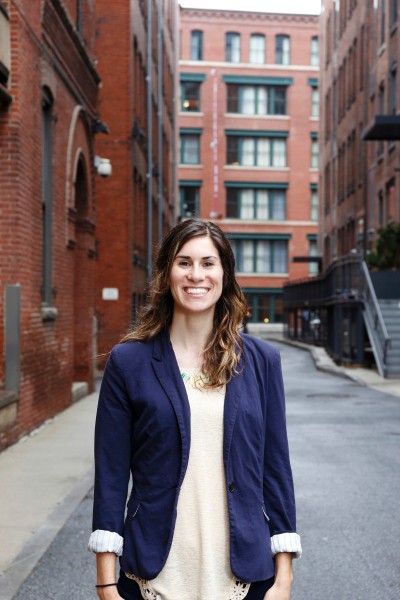
Alissa Marchant
The BC Social Work community is used to lending an active, compassionate voice to some of the most pressing issues of our day. We are leaders who aspire to mold positive policy, and we are successful in gaining a foothold in spaces and at tables that matter – our alumni, faculty, and friends occupy important positions in all kinds of sectors across the globe. On a daily basis, members of our professional community make critical decisions to better serve those living at the margins.
But while our network is vast and connected, one need not even go beyond our campus walls to find individuals who are devoted to making their voices heard on important issues.
The latest BCSSW student to do just this is second-year MSW candidate Alissa Marchant, who recently testified before the Massachusetts legislature at a hearing to discuss alternatives for incarcerated parents of dependent children. On the docket was a review of the proposed bill H. 1382, which, according to the National Association of Social Workers, “would create community-based services for non-violent primary caretaker parents, as an alternative to imprisoning them and separating them from their children.”
Marchant began to develop her expertise on this topic this past summer, when she and several classmates spent two weeks studying the largest women’s prison in Chile, as part of a course on social innovation taught by Associate Professor Stephanie Berzin. The main focus of the group’s work was to assess parent-child attachment in families where the mother was incarcerated at the Penitenciario de San Joaquin. (Read a first-hand account of the students’ experience).
Marchant also penned an article on the course for Focus magazine, a publication from the Massachusetts chapter of the NASW. BCSSW adjunct faculty member Dorothy Weitzman and NASW Massachusetts staffer Hope Haff saw this piece, which encouraged them to ask Marchant to present her own personal account of her experience at the State House.
“I had the opportunity to portray the impact of incarceration of non-violent mothers on the family, through the personal stories of some of the people I met in Chile,” explains Marchant. “While our work is most certainly backed by research and evidence, as social workers we are also uniquely positioned to provide an intimate look into a family torn apart by needless imprisonment, creating a type of gut reaction for policy makers that they cannot get from pure data. This is where, I think, we can make our greatest impact with regards to policy.”
Stay tuned to Innovate@BCSW for any developments on the potential enacting of H.1382 into law.

